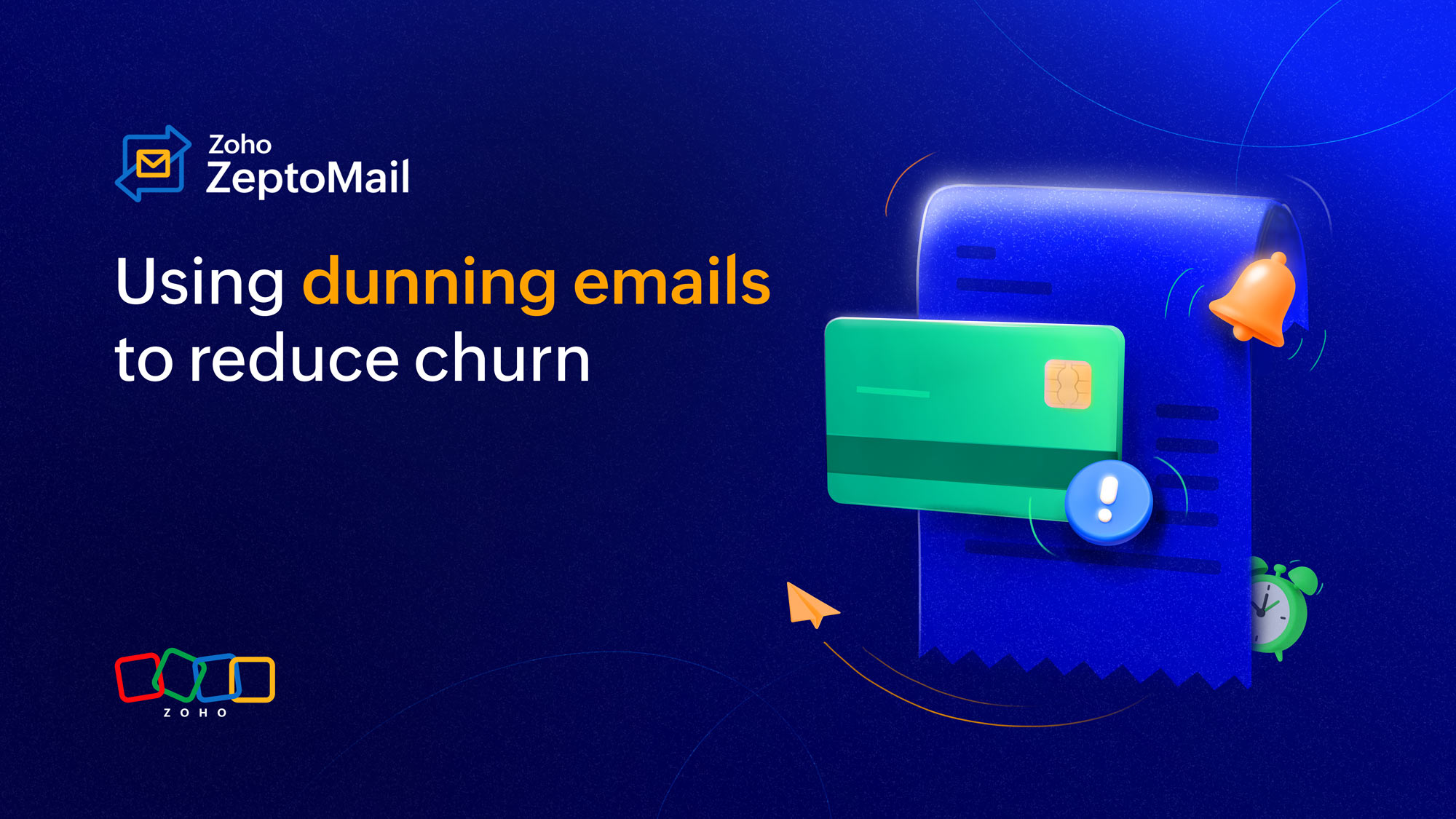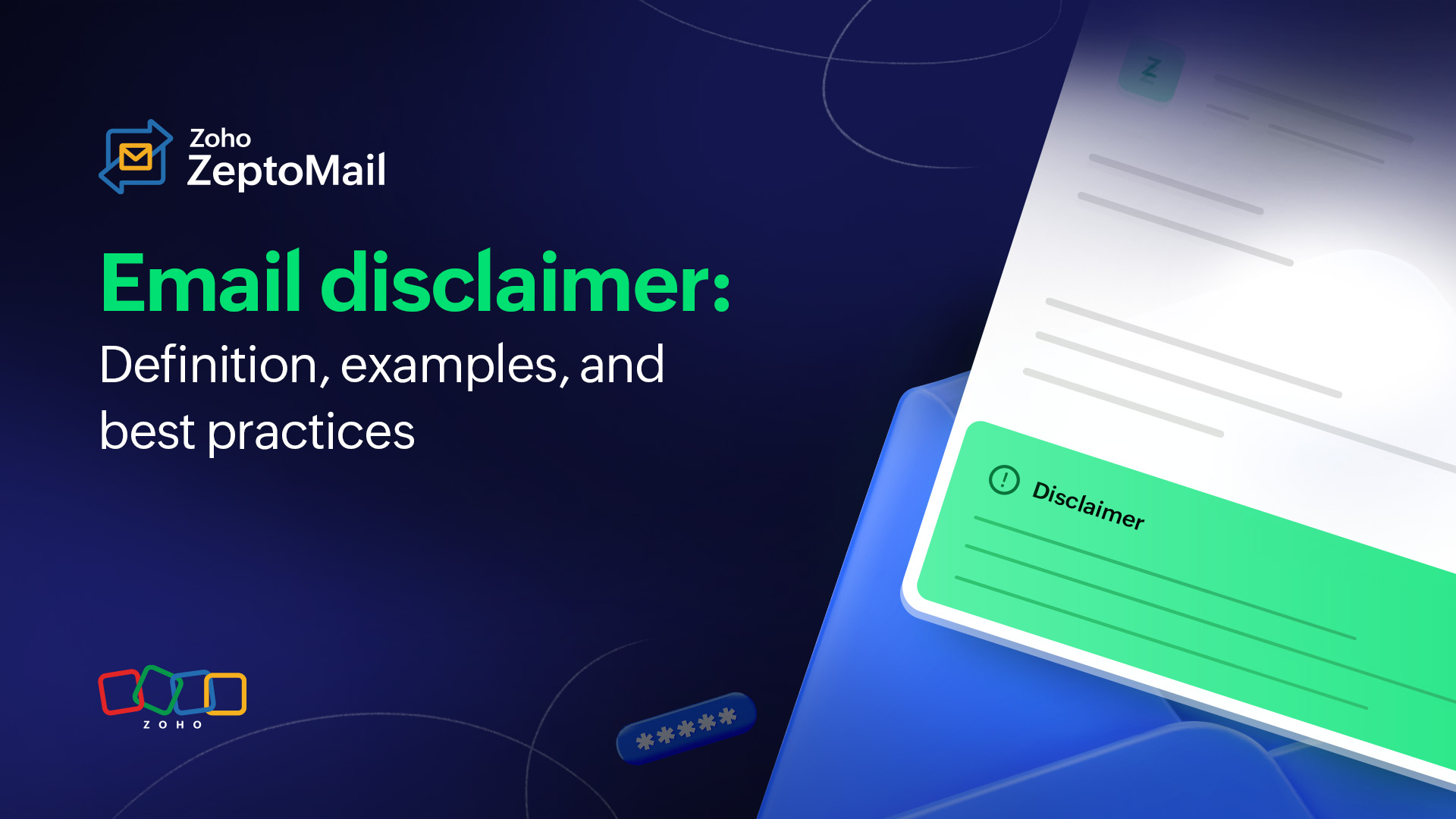- HOME
- More
- Best Practices
- 22 best practices to craft your order confirmation email
22 best practices to craft your order confirmation email
- Published : June 3, 2024
- Last Updated : June 3, 2024
- 752 Views
- 10 Min Read
Have you ever found yourself anxiously waiting for an order confirmation email after clicking the "place order" button during an online purchase? Even a slight delay or total absence of this important email can leave you wondering if your order went through successfully, or if there's been a glitch in the process. You can avoid this uncertainty by making sure that your order confirmation emails are well-crafted so that they reach your customers without delay.
Let's talk about why order confirmation emails are important, when to send them, and the best practices for crafting them in a customer's journey.

What is an order confirmation email?
A type of transactional email, an order confirmation email is sent to a customer immediately after they place an order. Generally, order confirmation emails are automated emails that acknowledge their order has been successfully placed.
Usually, an order confirmation email comprises the customer’s details, the date the order was placed, the customer's order summary, the estimated delivery date, the customer's shipping details, payment information, and any special instructions.
When is an order confirmation email sent?
An order confirmation email is triggered immediately after a customer clicks the "confirm order" or "place order" option. These emails are sent as a result of an action performed by the customer in an application or on a website.
How do order confirmation emails improve customer satisfaction?
The main goal of order confirmation emails is to improve the customer’s shopping experience. Let's see how these emails help satisfy the customer’s expectations.
1. Reassure your customers
Order confirmation emails are like getting a receipt after purchasing something at a brick-and-mortar store. The receipt acts as proof that you have purchased something from the store.
Similarly, an order confirmation email gives customers the reassurance that their online order was successful. You’ll instill confidence in your customers by ensuring that everything is taken care of and proceeding as expected. Reassurance is a small gesture, but this can significantly enhance customer satisfaction.
2. Reduce the need for contacting customer support
Order confirmation emails containing all order details can drastically cut support calls and chats. Clear information means fewer inquiries, saving time for both your customers and the support team. If customers aren't asking about their order status, it shows they're content with all of the information.
3. Build customer trust
When customers don't receive an order confirmation email after placing an order, they may feel deceived or scammed. This will adversely impact the customer experience and damage your brand's reputation. Sending order confirmation emails is essential for any business, and they need to share every detail of the order's progress and assure customers that their order will arrive soon.
Best practices to send effective order confirmation emails
Now you can see the importance and need for sending order confirmation emails. Let's explore some tips for crafting effective order confirmation emails and learn some of the best practices to deliver these emails right into your customers’ inboxes without delay.
1. Send your emails at the right time
Let's say you've placed an order, you're waiting for the confirmation email, but there's no sign of it. The longer you wait, the more uncertain and frustrated you become. An order confirmation email needs to reach customers’ inboxes as soon as possible. In order to do that, you can use an exclusive transactional email service like Zoho ZeptoMail to deliver your order confirmation emails in seconds to your customers' inboxes.
2. Add a simple and precise subject line
The first thing a customer sees when receiving an order confirmation email is its subject line. So make sure it doesn’t sound like clickbait. Here are some tips to make it more interesting and less spammy.
Keep it short: Your subject lines should be between 61 and 70 characters.
Use simple words: Use a writing style that every customer can understand.
Set the right context: Make sure your subject lines are focused primarily on conveying the fact that their order is confirmed. Let the readers know that even before opening an order confirmation email. Example: "Order {{#XXXX}} of {{no of items}} Confirmed."
Start with a tone of gratitude: Begin your subject lines with a thank you. Example: "Thanks for shopping with us!", "Thanks for your order."
Bring in the cheer: Use words like "woo-hoo", "hooray", "yay" and phrases like "exciting news", "celebration time!" to bring a sense of excitement among customers. Example: "Woo-hoo! Your order is confirmed: [Order Number]", "Hooray! Thanks for your order!"
Avoid spammy words: Watch out for words like “claim,” “bonus,” “free,” “cashback,” or “reward,” to avoid your order confirmation emails from being flagged by spam filters.
3. Plan your content structure
Arrange your content for order confirmation emails based on the hierarchy of information. Always start with a sweet note, then get into the customer details, followed by estimated time of arrival, then get into the order summary, payment details, and customer support information. Start with the important information and then cover the basics. This will be beneficial for readers who may not have time to read the emails thoroughly.
4. Start your email copy with a line of gratitude
It’s always good to start your order confirmation emails with a note of gratitude. Expressing gratitude fosters a positive relationship and makes customers feel appreciated. It can be a simple heartfelt thank you note that can brighten your customer's day. Over time, you can build long-lasting relationships with your customers.
5. Try to personalize the email content
Personalization is the key to create a sense of belonging among customers. If you’re wondering how to add personalized content to an order confirmation, try this. You can collect the customer's past purchase history, browsing behavior, or reward points and display customized content for them. But make sure you don’t seem so salesy or overwhelming for customers. Keep it subtle and low-key.
6. Avoid marketing content
Order confirmation emails are transactional emails sent as a response to the action performed by your customer. Avoid incorporating any marketing content into these emails. Let the email focus only on the necessary details related to the order. Promoting products or the brand would be irrelevant for the audience. Instead, you can add an amazing fact about the product they’ve purchased or add customer reviews about the product to re-emphasize that they’ve made the best choice.
7. Hyper-personalize your content using merge tags
Merge tags contribute to creating a more engaging and customer-focused order confirmation email. Merge tags are the only way you can hyper-personalize the order confirmation email content for each customer. Using merge tags enables the inclusion of details like the customer's name, order number, purchased products, shipping address, and delivery date automatically.
8. Use a skimmable email copy and design
Many customers don't read every part of an email thoroughly. Instead, they skim on-the-go and try to grasp the main points of the order confirmation email. Ensure that your order confirmation email has legible fonts, contrasted colors, and is organized in a way that allows skimmers to comprehend it easily within seconds.
9. Stay in tune with the branding elements
Visual branding is more compelling than any other form of branding. When you craft your order confirmation emails, make sure to incorporate the brand's color into your email templates, headers, and footers. By doing this, customers can easily identify and recognize your brand. So, remember to maintain consistency in terms of colors, fonts, and images in your emails to help your brand become recognizable to your customers.
10. Make sure the emails are mobile-friendly
According to recent research, 85% of users use smartphones to check their emails regularly. So make sure your order confirmation email template, design, and fonts are optimized for mobile devices as well. By optimizing them for different devices, you can enhance the customer experience. Nobody likes to look at an email with broken images, fonts, or that take a lot of time to load. So, make it a habit to test your email templates before sending them to your customers.
11. Display a clear order summary
This is the most expected part customers want to see. The primary purpose of the order summary is to provide customers with a clear and concise overview of their purchase. It should include essential information like the order number, product images, quantity, size, and a comprehensive price breakdown. Customers can easily recheck their order details for better clarity.
12. Make sure to add the right customer details
Another important tip is to display the appropriate customer information. This is sensitive data that needs to be accurate. Displaying data incorrectly can harm your brand's reputation. Order confirmation emails have important customer details such as customer name, shipping address, and phone number. So make sure these pieces are in place before sending your emails.
13. Provide a transparent delivery timeline
For customers, the most anticipated part of the email is getting to know the estimated date of arrival. It’s essential to set clear expectations for your customers rather than giving them fake promises. This section should give them an idea of when the order will arrive, and there will be another email update on the delivery details.
14. Include the right payment information
When it comes to payment information, be cautious about the data you present. Verify that the customer's billing address, payment method, transaction ID, or the last four digits of an account number are shown correctly in the order confirmation email. Make sure all of these details are highlighted and are legible for the customers to read.
15. Add a clear call to action
Include a prominent call to action button in all of your order confirmation emails, directing customers easily to the next steps. Use a call to action that gives straightforward instructions such as “review my order,” “download invoice,” and “check order status” to guide customers to the appropriate page for information regarding their order.
16. Keep customer support easily accessible
Order confirmation emails should include a section directing customers to contact customer service for additional inquiries. This section should appear before the footer, following the presentation of all essential order details. Customers are likely to have questions only when they lack necessary information. Including customer support in your order confirmation emails enhances your brand's reputation and user experience.
17. Keep an eye out for important details
Here’s a quick checklist of important details just in case you have FOMO on details while crafting your order confirmation emails.

18. Collect feedback on the customer’s shopping experience
Customer experience is critical for any business to prevail in the market. You can embed NPS surveys or “smiley” rating meters in your order confirmation emails to engage with your customers and hear about their shopping experience. The simplicity of smiley ratings increases response rates and more actionable data collection.
19. Provide links to social media
For any kind of business, it’s essential to establish a social presence to engage with customers over time. By using Facebook, Instagram, and Twitter, you can enhance brand awareness, share your journey, and drive more sales. Including links to your social media handles in order confirmation emails verifies the brand’s authenticity. Positioning them in the email’s footer guarantees that even if a recipient scans the message, they won't miss out on the links.
20. Don't forget to add your email signature
Always remember to include an email signature to your order confirmation emails to enhance their professionalism. Adding your logo, website links, and contact information will make the emails appear legitimate and build trust with customers by reducing the chances of them being scammed.
21. Test your emails before sending
Order confirmations emails have many elements like merge tags, images, alt texts, links, CTAs, and alignments. When you test your emails, you can:
Check for grammatical errors or missing text.
Make sure you’ve added the right merge tags.
Make sure to fix any broken images.
Replace incorrect alt text.
Check whether the hyperlinks are directing to the right page.
22. Stop sending emails from a no-reply email addresses
Try to avoid a no-reply email address when sending order confirmation emails. Customers get frustrated because it prevents direct communication with the brand. Using a no-reply email address can diminish customer engagement and responsiveness, which are key to building strong customer relationships. It can negatively impact your company's image by appearing unapproachable and unresponsive to customer needs.
Why should you use a transactional email service for sending order confirmation emails?
Sending order confirmation emails as transactional emails can benefit both the business and the customer. Here are some key advantages:
1. Better inbox placement
When transactional emails aren’t mixed with marketing emails, it often leads to better deliverability rates. These emails are less likely to be marked as spam, ensuring that your message reaches the recipient's inbox.
2. Timely delivery of emails
By using a transactional email service for your order confirmation emails, you can provide immediate reassurance to customers. The primary focus is timely communication with customers to build trust and worry less about the purchase, leading to a more positive customer experience.
3. Reduced bounce rates
Transactional email services ensure that emails are sent to verified and valid email addresses, reducing the incidence of bounces. Lower bounce rates contribute to a better email sender reputation.
4. Send volumes without interruption
Transactional email services provide dedicated IPs for high-volume email senders, so that all of your emails are delivered without delay. This improves your IP’s reputation so your emails get delivered at the right time.
5. Track email performance
Order confirmation emails can include tracking tools or webhooks to gather data on customer behavior on a website or application. This data can provide valuable insights into delivery rates, open rates, click-through rates, and other engagement metrics, helping you refine your email strategies and improve overall communication.
6. Security and privacy
Order confirmation emails usually carry sensitive information and data. When you send them as transactional emails, you can send encrypted order confirmation emails. By securing your emails, you can avoid your emails from being spoofed.
Order confirmation email templates in Zoho ZeptoMail
By taking all of these best practices into consideration, Zoho ZeptoMail has pre-built order confirmation email templates crafted just for you. You can use it as is, edit them, or create them from scratch; that's totally up to you, based on your requirements.
Apart from the templates, Zoho ZeptoMail follows all necessary security protocols, has great features for email management, back-to-back reports in minutes, and many more features to enhance your order confirmation emails.
Wrapping up
There's no greater joy than witnessing your customer smile when they receive emails from your business. One such email is an order confirmation email. By sticking to these best practices, businesses can make sure their emails are informative, captivating, and reflective of their brand identity. Now is the moment to make your customers feel special, appreciated, and valued with the order confirmation emails you send.


